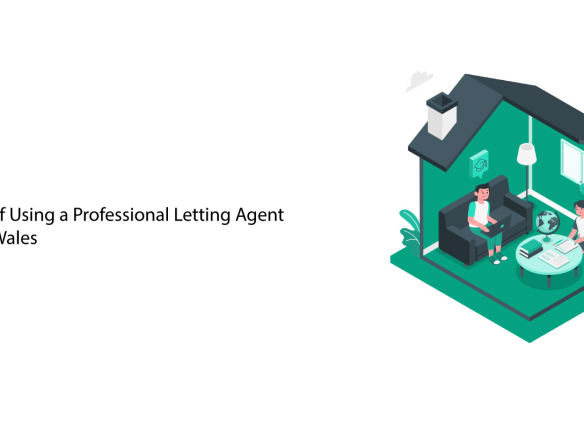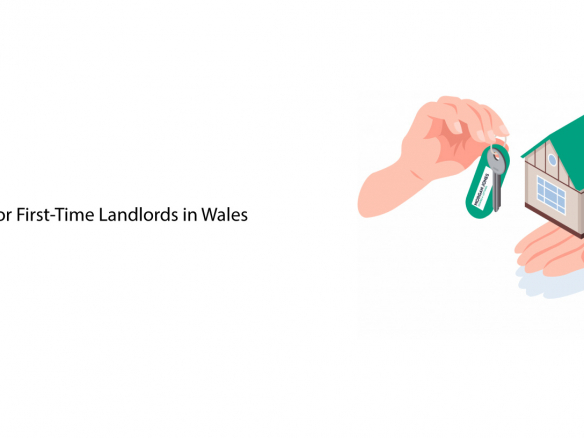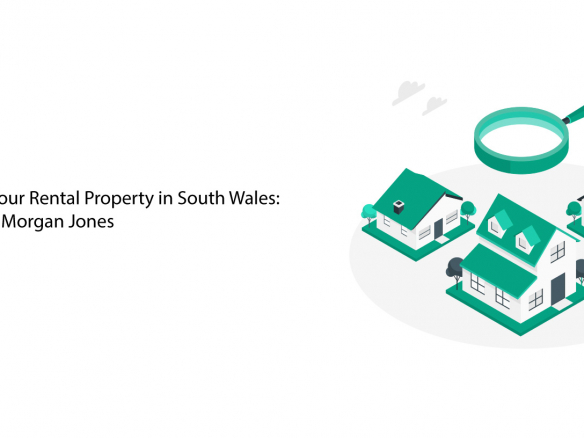Understanding legal responsibilities is crucial for landlords in Wales to safeguard their investments and maintain a successful rental business. The evolving landscape of rental regulations means landlords must stay informed and compliant to avoid costly penalties and potential legal disputes. This blog post aims to help landlords identify common legal pitfalls and provide practical advice on navigating these challenges effectively.
By highlighting critical areas of concern, such as registration requirements, deposit handling, and adherence to safety standards, we aim to equip landlords with the knowledge to protect their properties and reputations.
At Morgan Jones, we understand the complexities of property management and offer comprehensive services that ensure full legal compliance. Our expert team is here to help you manage your properties efficiently, reduce risks, and maximise returns. Contact us today to learn how we can assist you in maintaining a legally compliant and profitable rental business in Wales.
Common Legal Pitfalls
Failing to Register with Rent Smart Wales
In Wales, it is a legal requirement for all landlords to register and obtain a license with Rent Smart Wales. This registration ensures that landlords and their properties comply with Welsh housing legislation, promoting high standards in the rental sector. Failure to register can result in significant penalties, including fines of up to £30,000 and potential criminal prosecution. Proper registration keeps landlords compliant, enhances their credibility, and ensures they can legally manage their rental properties. You must be registered and licensed with Rent Smart Wales to avoid these penalties and ensure your rental business operates smoothly.

Improper Handling of Security Deposits
Landlords in Wales are legally required to place tenant security deposits in a government-approved deposit protection scheme within 30 days of receipt. Common mistakes include:
- Failing to protect the deposit.
- Not providing tenants with the required deposit information.
- Returning the deposit late.
Such errors can lead to legal disputes, fines up to three times the deposit amount, and difficulties in reclaiming damages or unpaid rent from the deposit. Properly handling security deposits is crucial to maintaining a positive landlord-tenant relationship and protecting your financial interests.
Non-Compliance with Safety Regulations
Safety compliance is a critical responsibility for landlords in Wales. Mandatory safety checks include:
- Gas Safety: Annual checks by a registered gas safe engineer to ensure gas appliances are safe.
- Electrical Safety: Regular inspections of electrical systems and appliances, with certifications provided to tenants.
- Fire Safety: Installing and maintaining smoke alarms and carbon monoxide detectors and ensuring properties meet fire safety regulations.
Neglecting these obligations can result in hefty fines and legal actions and, most importantly, jeopardise tenant safety. Regular safety checks and certifications are not just legal requirements but also essential practices to ensure tenants’ well-being and prevent potential hazards that could damage your property.
By addressing these common legal pitfalls, landlords in Wales can protect themselves from legal complications and ensure their properties are managed in compliance with current laws. For comprehensive assistance with legal compliance and other aspects of property management, consider partnering with Morgan Jones, where our experts can help you navigate the complexities of rental legislation.
Legal Responsibilities in Tenant Management
Issuing Incorrect Eviction Notices
Eviction is a sensitive process that requires strict adherence to legal procedures to avoid disputes and potential lawsuits. In Wales, the process involves serving the correct type of notice, depending on the reason for eviction:
Section 173 Notices: Used for ‘no fault’ evictions, requiring a six-month notice period. More info here.
Section 159 Notices: For breaches of contract, like antisocial behaviour, often requiring immediate or one-month notice, depending on the situation.
Sections 182 and 188 Notices: Issued for rent arrears, with a notice period of 14 days for periodic and fixed-term tenancies, respectively.
Common mistakes include serving the wrong notice type, failing to provide the correct notice period, or needing valid grounds for eviction.
Following the proper legal process is crucial to avoiding costly legal disputes and maintaining a fair landlord-tenant relationship.

Violating Tenants’ Rights to Quiet Enjoyment
Tenants have the right to enjoy their rental property without unnecessary disturbances or interference from the landlord. Violations can include:
Frequent Unannounced Visits: Unless it’s an emergency, entering the property without proper notice must be done 24 hours before.
Invasive Inspections: Conducting excessive or overly intrusive inspections that disrupt the tenant’s peace.
Neglecting Repairs: Ignoring maintenance issues that affect the tenant’s quality of life, leading to potential discomfort or hazards.
To respect tenants’ rights, landlords should give adequate notice before entering the property and promptly address maintenance issues. Building a respectful and transparent relationship with tenants is key to avoiding conflicts and fostering a positive rental experience.

Discrimination in Tenant Selection
Landlords must adhere to non-discrimination laws when selecting tenants, ensuring they do not engage in unfair practices based on protected characteristics such as race, gender, disability, or family status. Common pitfalls include:
Unconscious Bias: Allowing personal biases to influence tenant selection decisions.
Discriminatory Language: Using language in rental advertisements that suggests a preference or exclusion based on protected characteristics.
To comply with the law, landlords should:
Use Neutral Language: Ensure all advertising is free from discriminatory wording.
Fair Screening Practices: Apply consistent and objective criteria to all applicants.
Training and Awareness: Stay informed about fair housing laws and regularly review tenant selection processes to avoid unintentional discrimination.
Landlords can create a fair, compliant, and positive rental environment by understanding and upholding their legal responsibilities in tenant management. Morgan Jones offers expert support to landlords in navigating these responsibilities and maintaining lawful, effective property management practices.
Navigating Property Maintenance and Legal Compliance
Neglecting Property Maintenance Obligations
As a landlord in Wales, your legal duty is to ensure that your rental properties are well-maintained and habitable. This includes:
Regular Maintenance: Performing routine maintenance and repairs to keep the property in good working order. This involves fixing leaks, ensuring operational heating systems, and maintaining electrical safety.
Health and Safety Compliance: Ensuring the property meets all health and safety standards, including installing smoke detectors, performing gas safety checks annually, and conducting electrical safety inspections.
Failure to perform necessary maintenance can lead to significant legal consequences, including tenant disputes, compensation claims, and potential fines.
Neglecting these obligations jeopardises tenant safety, reputation, and investment. Regular maintenance and prompt repairs are crucial to avoiding these issues and maintaining a positive landlord-tenant relationship.

Understanding Rent Regulations
Landlords must adhere to specific regulations regarding rent increases to ensure fairness and compliance with the law. Key points include:
Legal Notice Periods: When increasing rent, landlords must provide tenants with the correct notice period, typically one month for periodic tenancies and as stipulated in the tenancy agreement for fixed-term tenancies.
Rent Caps: Be aware of local rent caps or regulations limiting how much you can increase the rent within a given period.
Common mistakes include failing to give proper notice of a rent increase or exceeding legally permitted rent levels. These errors can result in disputes and potential legal action. To avoid these pitfalls, always follow the prescribed legal procedures for rent adjustments and ensure that any increases are reasonable and justified.
Adhering to HMO Regulations
Strict compliance with HMO regulations is essential for landlords managing houses in multiple Occupations (HMOs) in Wales. Key requirements include:
Licensing: Obtaining an HMO license from the local council involves meeting specific property conditions, safety, and management standards criteria.
Safety Standards: Comply with enhanced safety standards, including adequate fire safety measures, such as fire doors and alarms, and provide sufficient bathroom and kitchen facilities for the number of tenants.

Non-compliance with HMO regulations can result in significant penalties, including fines and possible property closure. Ensuring that your HMO meets all regulatory requirements protects your tenants and investment.
Regular inspections and adherence to HMO standards are crucial for legal compliance and tenant satisfaction.
By understanding and navigating these maintenance and legal compliance requirements, landlords can avoid common pitfalls and ensure their rental properties are safe and compliant. Morgan Jones offers expert property management services to help you stay on top of these obligations and maintain your properties effectively. Contact us for more information on how we can assist you in managing your property portfolio.
How Morgan Jones Can Help
Comprehensive Property Management Services
At Morgan Jones, we offer comprehensive property management services tailored to meet the needs of landlords in Wales. Our expert team is dedicated to helping you navigate the complex landscape of legal requirements and property management. Here’s how we can assist you:
Legal Compliance: We ensure that your properties meet all local and national regulations, from Rent Smart Wales registration to safety certifications. Our proactive approach helps you avoid legal pitfalls and maintain compliance, reducing the risk of fines and disputes.
Tenant Management: We handle everything from tenant screening to lease agreements, ensuring all processes comply with the latest housing laws. This includes conducting thorough background checks, managing tenant relations, and handling legal notices or disputes.
Maintenance and Repairs: Our services include regular property inspections and prompt handling of maintenance issues, ensuring your property remains in top condition and meets all safety standards. We coordinate with trusted contractors to perform necessary repairs, helping you avoid the legal repercussions of neglecting maintenance obligations.
By choosing Morgan Jones, you benefit from professional management that enhances property performance, minimises risks, and maximises your rental income.
Expert Legal Guidance and Support
Navigating the legal complexities of property management can be challenging, but you’re not alone with Morgan Jones. We provide expert legal advice and support to ensure that you meet all your legal obligations as a landlord in Wales:
Up-to-date Knowledge: Our team stays informed about the latest changes in housing regulations and laws, ensuring you remain compliant and current. This includes guidance on handling evictions, managing deposits, and complying with HMO standards.
Dispute Resolution: Should legal issues arise, we offer support in resolving disputes effectively and legally, whether they involve tenant conflicts or regulatory compliance. Our goal is to protect your interests and provide peace of mind.
Consultation Services: We offer personalised consultations to assess your needs and provide tailored solutions to ensure full legal compliance. Whether you need advice on tenant law or property maintenance requirements, our experts are here to help.
With Morgan Jones, you gain the assurance that your property is fully compliant with Welsh laws, allowing you to focus on the benefits of property ownership without the stress of legal complexities. Contact us today to learn more about our property management services and how we can help you maintain a legally compliant and successful rental portfolio.
In summary, navigating the legal landscape as a landlord in Wales requires careful attention to detail and a proactive approach to compliance. We have discussed critical areas where landlords often need help registering with Rent Smart Wales, improper handling of security deposits, and non-compliance with safety regulations. Understanding your responsibilities in tenant management, maintenance, and legal compliance is essential for avoiding costly penalties and maintaining a successful rental business.
Legal compliance is not just a requirement but a foundation for building a reputable and profitable property portfolio. If you’re unsure about your legal responsibilities or need assistance managing your properties effectively, seeking professional help is crucial.
Ensure your properties are managed with the highest legal compliance and efficiency standards. Contact Morgan Jones today for a consultation on our comprehensive property management services. Our team of experts is ready to help you navigate the complexities of property management and avoid common pitfalls.
Visit our Contact Page or contact us at 01792 651311 to start the conversation. Let Morgan Jones guide you through every step of your property investment journey, ensuring success and satisfaction in the competitive Welsh real estate market.








Join The Discussion